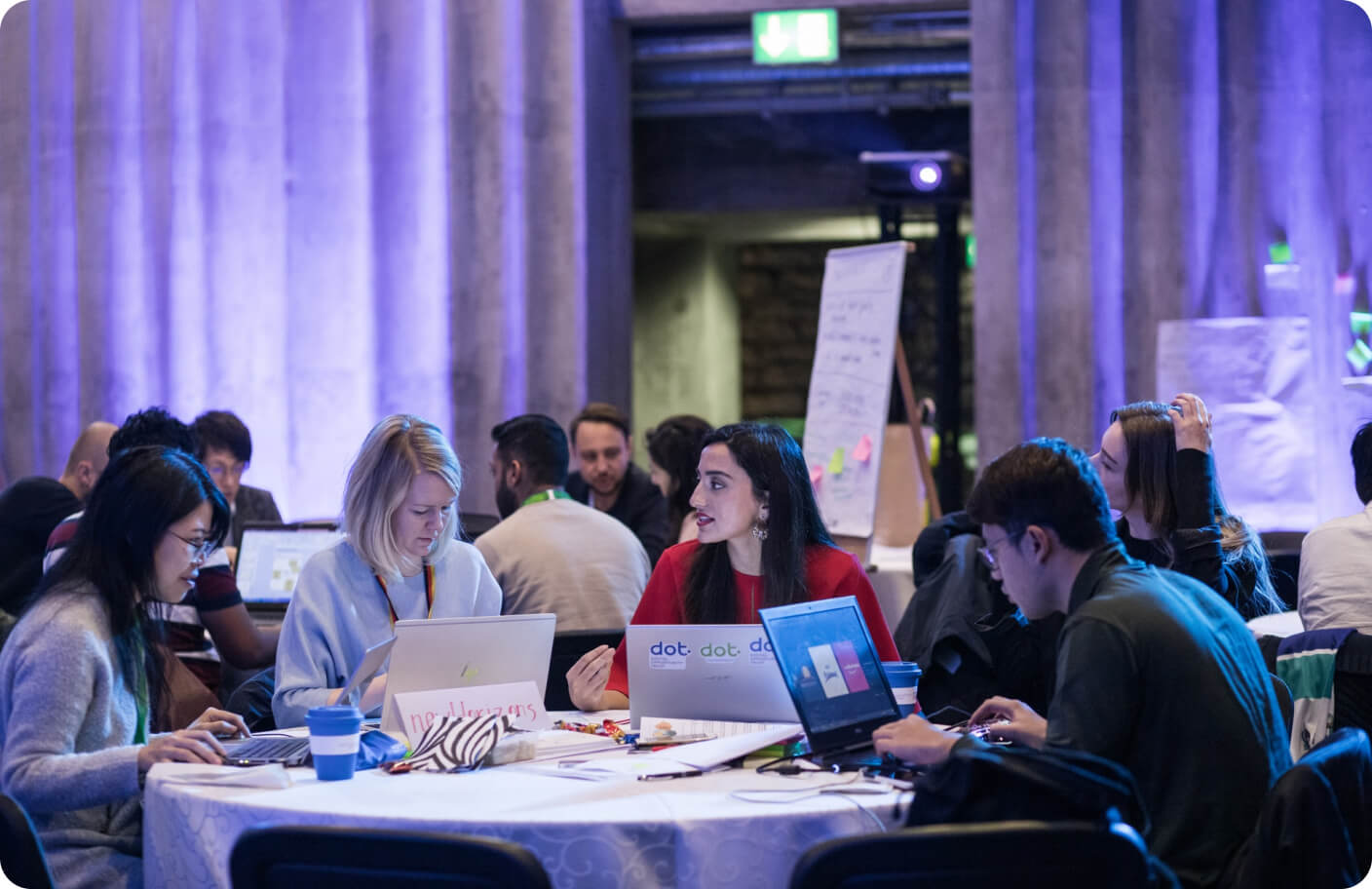spring into success: e-residency’s tallinn study adventure
Earlier this year, the e-Residency team organised a study day - full of networking, learning and information sharing - for 20 e-resident startup founders
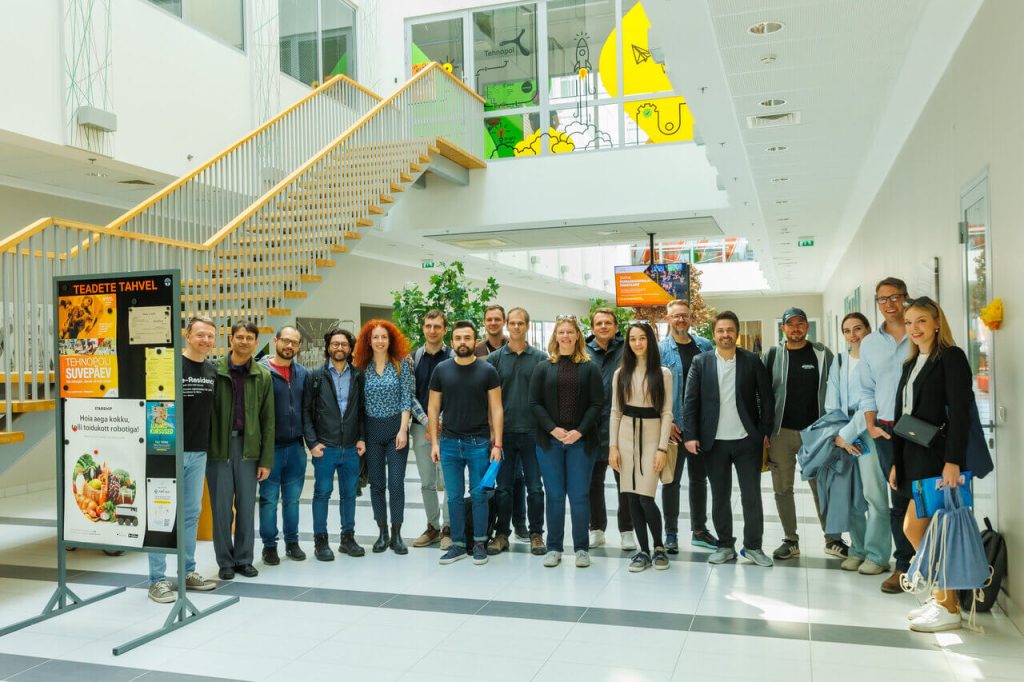
Estonian e-Residency may be almost a decade old, but we continue to look for new ways to involve e-residents in the economic success of Estonia. For instance, last spring, during the Latitude59 conference, we introduced a new format to promote Estonian entrepreneurship programs and ecosystem to e-resident startup teams. Twenty hand-picked founders were given the opportunity to take part in a special e-Residency study day in Tallinn. During the day, the e-residents visited various companies and heard the success stories of other e-resident founders who are now based in Estonia.
By taking part in the study day, participating e-residents were able to gain new knowledge, expand their networks, and generate new business development ideas. Feedback was overwhelmingly positive, with e-residents reporting the study day was "exciting" and "useful," and expressing a desire to take part in another study day in the future.
"My expectations were exceeded with how much useful information and context I got from the day," said one of the participating e-residents. "I met interesting people, learned about opportunities that I was unaware of, and made valuable connections," another one said.
For those who weren’t able to attend the study day, read our overview of what took place.
Estonia's healthy startup ecosystem
EnderTuring CEO Olena Iosifova became an e-resident in 2016, but it wasn't until two years later that she put her e-Residency card to use when she and her husband decided to launch an innovative startup. After two false starts and a lot of investments, they created EnderTuring, a startup that offers AI-based speech and analytics solutions that enable companies to maintain active communication with their customers.
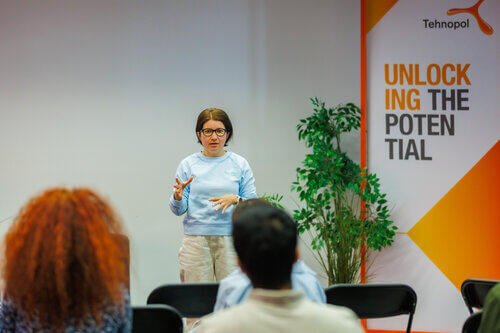
While the business has been successful, getting it off the ground was not easy. "When we started EnderTuring, we had figured out two things," Iosifova told e-residents during the first-ever study day.
"First, you shouldn't start a startup with only your own money. You also need investors," she said. "Second, you need to understand what a startup is. It's not just a business that you can build and get successful over 20 years," she added. "As a startup, you will grow really fast, and you should be scalable."
Iosifova noted that this process was made somewhat easier by Estonia's ecosystem. Even if EnderTuring's principals didn't know something, someone in their network was always available to help.
During the e-Residency study day, Envelope CEO Khuldoon Bukhari similarly credited Estonia's ecosystem, which he described as being admirable.
"I haven’t seen this kind of closeness in any kind of ecosystem," said Bukhari. "I've heard similar things about the Silicon Valley and Israel's ecosystem, but I haven’t seen those myself," he remarked.
Get one investor on board and the rest will follow
Bukhari's business offers AI solutions to help grocery stores keep their products in stock by providing real-time shelf overviews and advanced reporting. Bukhari admitted that starting the business was challenging because finding investors was very difficult. The war in Ukraine was underway, and Western investors said that Estonia was a high-risk country. One investor even said that they would consider investing once Finland joined NATO.
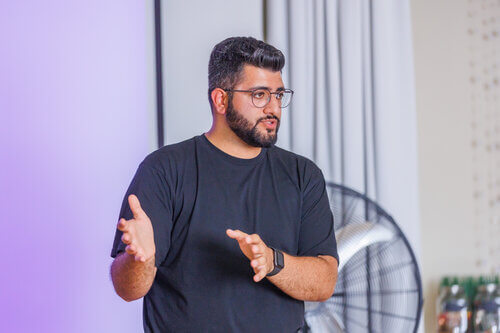
"It's funny, at first no one wanted to touch it, but by the time we had one investor say yes, then we raised three times the money we wanted to raise, because there was so much interest at that point already," said Bukhari. "So, in the end we had to choose who we wanted to work with, not the other way around."
Iosifova also said that it’s important to get one investor on board and that the rest would soon follow. In a country the size of Estonia, where everybody knows everybody, it's smart to drop a few names when talking to possible investors, she suggested. For that, however, it is vital to know one's product and identify investors with the right profile based on that.
There are also some new trends when finding investors. Martin Goroško, a member of Estonian Business Angels Network, mentioned in his talk with e-residents that there is a tendency to find one lead investor who will then do the work of finding other investors as well.
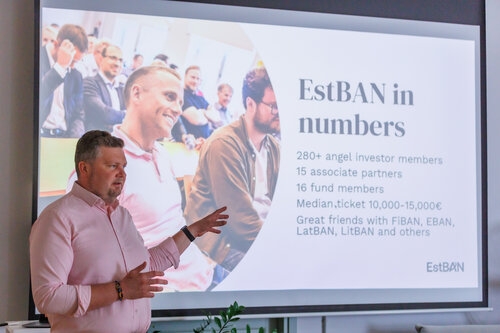
“If companies wanted to fundraise, they normally had to go through many angels, angel by angel. They had to present their case, how much money they needed, et cetera," he said. "Right now, the situation is a bit different and companies are searching for a lead investor who can represent their case to other angels,” Goroško added, noting that after finding the lead investor, it's usually only a matter of weeks before the funds coalesce.
In that way, it's also possible to take some work off of the founders' shoulders. Parmeet Sawhney, CEO of HopLocal – a startup that helps companies organize team events – mentioned that finding investors is a full-time job and leaves little time for other assignments.
In addition to finding investors, HopLocal also had to increase sales, which was just as time-consuming a job as raising money. He said that people told him he needed to have an Estonian cofounder to make the process move more smoothly. However, looking back, he said that he wasted time searching for a local cofounder. "If you have a good business idea that makes sense, and can demonstrate it to another person who can speak English, then language is not a barrier," he said during his talk with e-residents.
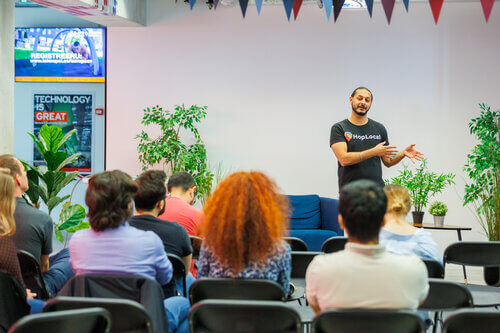
Goroško added that e-residents also have an advantage when it comes to finding investors in Estonia, because they are more or less considered to be locals.
"Location-wise, e-residents are on the safe side," he said. "Seventy-eight percent of the investments from the angels actually go to companies in very close geographical proximity," he said.
Goroško argued that there is a good reason behind that, as angels want to be hands on, so that if they invest somewhere, they actually will bring the know-how and knowledge along. "It's really good to do that if they are close to you," he said.
The CEOs also shared tips on finding investors. The main takeaways were the following:
- Believe in your product but listen to the feedback you get and change your pitch accordingly.
- Apply to different incubator programmes, hackathons, etc.
- Know the local market.
Watch a short recap to feel the happy, creative and informative vibe of the Study Day in this video:
In addition to the speakers mentioned, participants of the e-Residency study trip also heard from our team about what entrepreneurs and startups can expect when setting up and operating a business in Estonia. Anne-Liisa Elbrecht from Tehnopol Startup Incubator introduced Tehnopol's growth program and Anett Numa from Accelerate Estonia did a crash course entitled, "If you had a country, what would you do with it?"
If you didn’t get the chance to join us this year, stay tuned for the next e-Residency study day in May 2024! Our next trip will be more ambitious, with new exciting founder stories, visits to cool incubator programs, and much, much more.
New Funding, Grants and Growth Portal for e-residents
The e-Residency team also recently launched a new funding and grants portal on our website. Here you can find links for some of the entrepreneurship programs in Estonia for pre-startups and startups.
More from e-Residency
- Sign up for our newsletter
- Watch fresh video content - subscribe to our Youtube channel
- Meet our team and e-residents - register for our next Live Q&A
